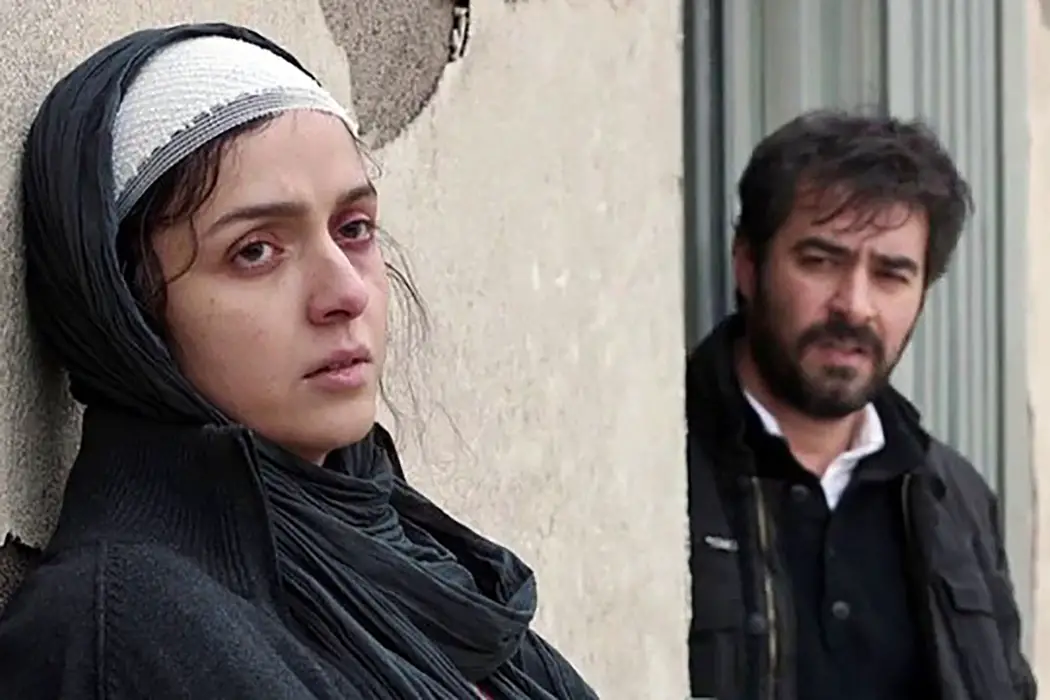THE SALESMAN: Morally Complex & Utterly Engaging

Alistair is a 25 year old writer based in Cambridge.…
Asghar Farhadi is widely regarded as one of the world’s leading dramatists working today, delivering tightly-knotted narratives that expertly blend a nerve shredding tension with an acutely observed realism. He is currently Iran’s most internationally celebrated filmmaker due to how he manages to deliver social critiques of his religiously conservative society, but in delicately written ways that invite comparisons to how Hollywood tackled social issues during the Hays Code era.
His status as a leading figure in world cinema is unlikely to change with The Salesman, another slow-burning drama that masterfully combines naturalistic performances from the entire ensemble with a plot that increasingly moves further and further into textbook thriller territory.
A Meta Retelling of Death of a Salesman?
Calling the film “The Salesman” is in itself something of a red herring to the film’s driving narrative force. Farhadi’s recurrent collaborator Shahab Hosseini stars as Emad, a high school literature teacher who is currently starring in an amateur production of Death of a Salesman, along with his wife. By having him play the role of Willy Loman within that play, it would be simple to assume that Farhadi’s story is going to develop a meta angle to draw parallels between the character of Emad and the famous role he is performing.
An intelligent writer of Farhadi’s stature doesn’t take to simplistic ideas that can be easily deciphered – and simply equating Emad’s story with that of Willy Loman’s downfall would remove all the morally problematic issues that manifest themselves as the story progresses, if the comparison between the two characters were possible to be made whatsoever. Directly equating Emad and Loman is a subtle act of misdirection, as it isn’t until reflecting on the film long after viewing that you realise Emad’s arc isn’t designed to mirror the tragic arc of Willy Loman in Arthur Miller‘s play, with that honour falling to another vital member of the ensemble.
Despite recurring sequences from the play being performed, outside of a certain character arc Death of a Salesman and The Salesman can be compared only in the broadest sense. They are two different character studies of men failing to act in their families’ interests, as well as two comparative studies in the differing gender politics in the nations they are respectively set in.
In The Salesman, Emad and his wife Rama (Taraneh Alidoosti) have recently moved to a new apartment building, where the previous tenant has recently vacated, leaving her old belongings lying around. While home alone one day, Rama buzzes in a man she believes to be her husband, only to be sexually assaulted.

The neighbours take her to the hospital, where they warn the couple that the previous tenant was free-spirited and had multiple sexual partners, and that the man who came to visit must have mistakenly identified Rama to initiate the crime. Rama decides not to go to the police about the attack, but is struggling to adapt back to reality in the fallout from the incident. Noticing that the perpetrator left his van outside the building, Emad decides to take matters into his own hands to find the identity of the perpetrator.
As with all of Farhadi’s films, a simple outline of the plot doesn’t do justice to the way it unfolds. His 2009 film About Elly gradually transformed into an unsettlingly ambiguous mystery, while his universally acclaimed 2011 film A Separation invited comparisons to Rashomon due to its bold structure, that transformed a story about a divorce into one of the most intricately layered and morally complex features this decade. The Salesman joins those two features as examples of how he manages to take a fairly straightforward social realist narrative and apply it to a more ambitious structure, with a more complex insight into the characters portrayed.
Going briefly back to Death of a Salesman, there is one character whose arc more directly mirrors that of Willy Loman – albeit one who isn’t introduced until the film’s third act, and discussing in great detail would ruin the metatextual joys of Farhadi’s latest work. There is still much to talk about around the margins of this expertly told morality play, as Farhadi always manages to condense major issues in Iranian society into single scenes, shining a light on them without ever having his actors spout dialogue that acts as a political diatribe (not that the strict Iranian censors would allow that, anyway).
Not just a morality play, but a vital snapshot into Iranian life
One of the best examples in The Salesman is an early sequence of play rehearsals, with one of the actresses dressed in full clothes, while reciting dialogue about how she is wearing next to nothing. One of the actors bursts into laughing at the sheer ridiculousness of the situation. It is an absurdly comic sequence regardless of the country of origin, made even better by the unspoken observation that the American play is allowed to be performed verbatim in Iran, but with no visual stimulants that could shock a religiously conservative society.
Elsewhere, the reactions of supporting and incidental characters to the sexual assault crime Rama has suffered are the exact opposite to what news media would lead you to assume a Muslim culture would respond with. She isn’t cast out from society and the characters who know about the attack are righteously angry on her behalf – although one character acknowledges that law enforcement may not treat the case with the same empathy, a parallel between Iran and the Western world, where empathy for victims still isn’t enough to ensure the law is on their side. Farhadi’s cinema is a keen reminder that the citizens of a country under strict religious rule are far more human, empathetic, and nuanced than the government presiding over them.

As the film develops, there are numerous comparisons with Christian Mungiu’s Graduation, which premiered alongside The Salesman at last year’s Cannes Film festival. They make for an interesting double bill examining how third parties respond to the assault case of a loved one, with a cluelessness to how to appropriately handle the situation. In Mungiu’s film, the lead character’s daughter is raped on her way to an important university entrance exam, that the trauma leaves her unable to take. He goes out of his way to get the answers to the exam questions for his daughter, so she can cheat her way through repeat tests and not have her future ruined by the attack – a decision which has major ramifications.
It is strange how the same controversial subject matter forms the basis for two of the finest films to emerge from last year’s Cannes lineup, both examining the fallout of a sexual assault from the perspective of the victim and the victim’s loved ones in morally dubious ways. Neither film is easy viewing, but both are utterly essential – Farhadi’s film being the strongest of the two, due to how delicately he handles the subject matter so that it never becomes too difficult to watch, no matter how much tension is generated from the integral moral puzzle he presents.
Conclusion
The Salesman is conclusive proof that a social realist film doesn’t have to avoid showcasing storytelling ambition when documenting real life issues. Farhadi’s film masterfully flirts with experimental meta-textual elements and still manages to maintain its status as an intimate and heartbreakingly relatable character study, with a grand moral dilemma at its core that all but forces the viewer to put themselves in the shoes of its leading characters.
What are the best Iranian films of recent years?
The Salesman is out now in the US and is released on March 17 in the UK. All international release dates are here.
Does content like this matter to you?
Become a Member and support film journalism. Unlock access to all of Film Inquiry`s great articles. Join a community of like-minded readers who are passionate about cinema - get access to our private members Network, give back to independent filmmakers, and more.
Alistair is a 25 year old writer based in Cambridge. He has been writing about film since the start of 2014, and in addition to Film Inquiry, regularly contributes to Gay Essential and The Digital Fix, with additional bylines in Film Stories, the BFI and Vague Visages. Because of his work for Film Inquiry, he is a recognised member of GALECA, the Gay & Lesbian Entertainment Critics' Association.













